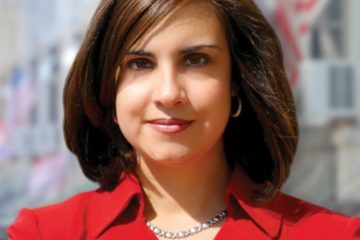Voting Trends Among Jews
The Importance of an Individual’s Vote
In a country founded on the basis of popular sovereignty, every individual’s vote is critical in order to uphold our fragile democracy. After all, when looking at their track record, popular votes have caused monumental changes in the US: they have elected leaders who have started wars, ended slavery, and broadened the scope of freedom. And despite the fact that the Jewish voting bloc only makes up a small portion of the American population, it has been critical in promoting large changes throughout our history. What’s more, Jewish voting trends over the years have often dictated which candidates end up getting elected.
Freedom of Religion in America
When America was founded, it was the only country in the world to separate religion from politics, which meant that by law, Jews, along with other minorities, could not be discriminated against under the law for their religion.Thus, Jews understood – and evidently continue to understand – the importance of using their vote to keep it that way. What’s more, Jews (who had been immigrating to America from freedom stricken countries) knew that the liberties that America offers are worth their time to vote for. Because of this, the Jewish voter turnout has statistically been consistently higher than the average voter turnout. In presidential elections, Jews have been estimated to have an 80% voter turnout, which greatly surpasses the nation as a whole. And despite the fact that Jews only make up 2% of the nation’s population, they have historically represented 4-5% of the electorate in previous elections.
Understanding Jewish Voting Trends
For the past century, the Jewish vote has been overwhelmingly Democratic. There are many reasons for such: these origins can be traced back to FDR as a result of his New Deal, or they can simply be tracked to the the perception that the Democratic Party is “the minority party” (which this organization is not arguing).
Since the 1920s, Jews have voted for the candidate that seemed more accepting of religious minorities, and poor immigrants that made up the Jewish community in America. For example, in the 1940 election, 90% of Jewish Americans voted for the Democratic presidential candidate, Franklin D. Roosevelt, because of his perceived support for minorities via governmental aid. Little did they know, FDR was, in reality, a blatant antisemite.
Orthodox Jews & Voting
However, since the year 2000, the more religious Orthodox Jews, which only make up 10% of America’s Jewish community, have tended to lean right, sharing political and moral values with evangelicals and religious Catholics. Additionally, the right’s approach to the “Israel question” favors the Orthodox Jewish ideals more. In the 2020 election, Orthodox Jews prioritized issues like Israel, Iran, and terrorism as their top three concerns when choosing a candidate, as demonstrated in a polling survey by Nishmah Research. Likewise, Republicans and Republican candidates prioritize these same concerns. Consequently, by the mere virtue of the two groups sharing the same top concerns, the vote very similarly. This would explain the increase of 250,000 Orthodox Jews voting for Trump in the 2020 election than the 2016 election.
Other Jews
For the other American-Jewish voters though, the United States’ relationship with Israel is not a priority. When asked what their biggest factor in deciding who to vote for in the 2018 midterm elections, 43% of Jewish voters picked healthcare, 28% picked gun violence, and 21% picked Medicare and Social Security, while only 4% picked American-Israeli relations, and 1% picked Iran. In fact, most American-Jews (who are not Orthodox) opposed Donald Trump’s right wing Israeli policies, a majority (64%) supporting a two state solution in 2019. In 2018, 47% of Jews even opposed Donald Trump’s decision to move the United States Embassy from Tel-Aviv to Jerusalem.
Conclusion
For centuries, the Jewish vote played a huge role in shaping American politics. They took part in progressive movements in the 19th and early 20th century such as socialism, worker unions, women’s rights, and freedom of religion, which is reflected in their voting trends. Because of the Jews continual engagement in politics, it allowed – and continues to allow– them to become more of a priority for those who are running the country. This in turn gives way for the Jews to protect themselves, their nation, and the policies they care about. No matter who you are or who you vote for, being an active, participating citizen is vital, not just to ensure that your values are being expressed in our government, but also to withhold the fabric of our democracy.
And the Jewish Voters League of America (JVLA) is committed to this goal. We are dedicated toward ensuring that every citizen and every Jew is an active one, participating in all elections and voicing their opinions so that their voices can and will never be silenced.
Through other JVLA events in tandem with our biweekly newsletters, we are committed to keeping the conversation surrounding racism and antisemitism brewing, and we are committed to ensuring that every Jew has the tools. We are dedicated toward ensuring that our members are educated about these topics so they can easily vote when election time comes. After all, all change begins at the ballot box.


